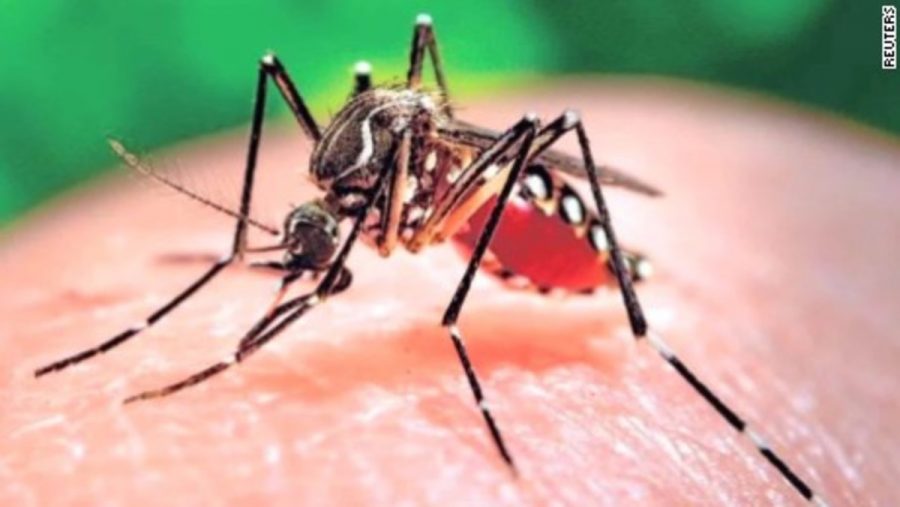By Ruth Kramer ’18, News Editor
It is the newest virus that’s causing utter fear and uproar in the western world: the Zika Virus. If you have not been watching the news lately, the Zika Virus is a disease caused by a bite from Aedes mosquitos in various countries; presently, the virus seems to be most common in South America. And ever since a Texas case of Zika hit the United States in early February, this country has taken a hard look at the virus to ask why this disease is suddenly spreading so rapidly and why now. There are still many questions surrounding the Zika virus, some of which will be answered here, but other questions still remain. Is this virus as dangerous as new broadcasters paint it to be? Is it possible that the scientific community is causing the public to unnecessarily overreact?
First of all, Zika virus is not a new virus that has suddenly popped up out of nowhere. There have been various cases all over the world, including places such as Indonesia, Egypt and other countries in Africa, South America, and Mexico. The Zika virus has a possible link with microcephaly, a condition in which a child is born with a smaller head than presumed healthy and can even cause brain damage. Mothers who were infected with Zika have, in a few cases, had children with microcephaly.
What are symptoms of Zika? Is there a vaccine? Is this virus fatal? These are all very common questions about the virus that do currently have answers. According to the Centers for Disease Control and Prevention (CDC), the Zika virus can cause symptoms such as fever, rash, joint pain, or red eyes. Treatment of these symptoms is fairly simple: drink plenty of fluids, rest often, and take medicine to lower your fever. The strange thing about Zika symptoms is that only one out of every five people who are infected with Zika get any symptoms, so many people who have the virus may not even know it. Currently, there is no vaccine for Zika, but there are things that people can do to help prevent the possibility of getting infected with Zika. These include: wearing long-sleeved clothing, using EPA (Environmental Protection Agency) approved mosquito spray, and if you are traveling out of the country, sleep under a mosquito net at night as to keep the pests out while you sleep. It is also important to note that the possibility of dying from the Zika virus is very, very rare and the number of people hospitalized for Zika is extremely low.
There are still many questions that are unanswered about the Zika virus, including its possible link to Guillain-Barré syndrome (GBS) which is a disorder that causes the immune system to attacks nerve cells. GBS usually exits one’s system in a few weeks, and at most a couple of months, but in a small number of cases people have been left with nerve damage or have died.
Many people and perspective parents are also wondering if a woman becomes infected with Zika and chooses to have a child later in life (for example say 5-10 years later), will her baby be at risk to develop microcephaly? The answer to this is no. The baby will not be born with microcephaly as a complication of the mother’s Zika infection from several years past. Zika virus, at most, stays in the body for a maximum of 20 days and the likelihood of getting the virus a second time is almost impossible, as those affected are left immune to the disease once it has left their system. So, future mothers who are planning to travel to South America should not worry about becoming infected and giving their child a disease. Also, if a woman visits a country that has had Zika cases, and becomes pregnant once back in the states, she has nothing to worry about. Dr. Laura E. Riley of Massachusetts General Hospital said that she “wouldn’t be worried if you conceived after you got back to the US.”
Overall, Zika is a relatively benign virus that is only a major problem for pregnant women and their future babies. There is a very low possibility of contracting the disease and being severely affected by it if you are not pregnant. But this disease has raised many safety questions about the 2016 Summer Olympics in Rio. The United States Olympic Committee (USOC) is now encouraging athletes to think about skipping the Olympic Games this year because of the mysteries that still lie behind the Zika Virus and the apparent dangers. Although this virus is not life-threatening, it is good that we as Americans are now aware of this disease. Now that we are aware, we can research the virus and help create vaccines and different prevention techniques. Despite the sadness and fear this diseases has brought, it has also brought scientific efforts to make the whole world a safer, healthier place for us and our children.
______________________________________
Sources:
http://www.nytimes.com/interactive/2016/health/what-is-zika-virus.html?_r=0
http://www.cdc.gov/zika/symptoms/index.html
http://www.cdc.gov/zika/disease-qa.html
http://www.reuters.com/article/us-health-zika-idUSKCN0VB145
http://www.cnn.com/2016/02/01/health/cdc-frieden-zika-explained/
Image Source: http://www.popsci.com/what-is-zika




